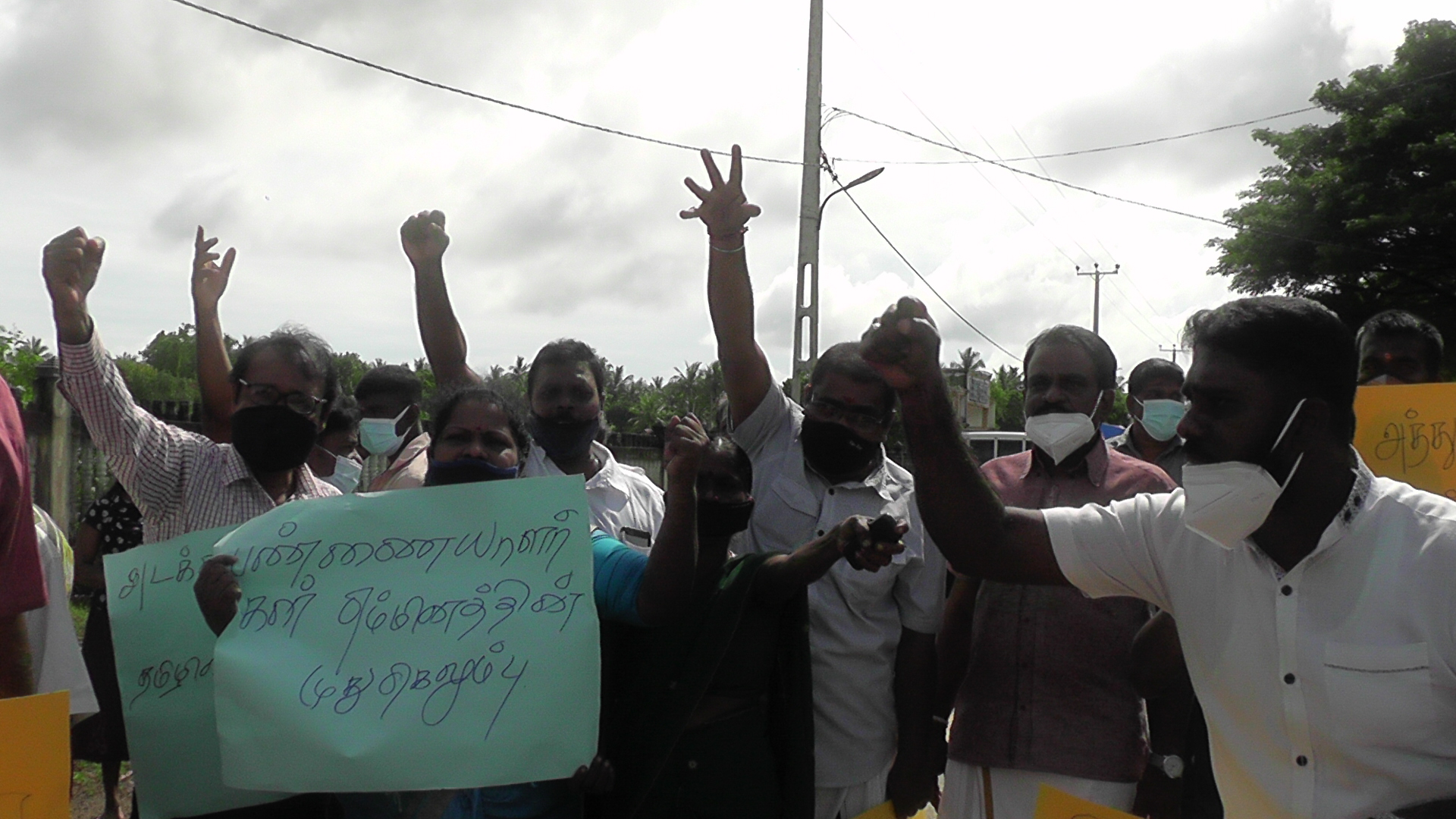.jpg)
Two women wade through water in Mullaitivu following Cyclone Burevi in 2020
Responding to the UN appointed Inter-governmental Panel on Climate Change (IPCC), Sri Lanka’s Environment Minister, Anil Jasinghe, commended the report agreeing with UN Secretary General, Antonio Guterres’s assessment that climate change was a “code red for humanity”.
In his statement Jasinghe emphasised that climate change is out of control and that island countries such as Sri Lanka would be the most affected. In 2018, the environmental NGO German Watch had ranked Sri Lanka second in among countries worst impacted by climate change, with Puerto Rico ranked highest.
The IPCC report highlighted that at the current rate, the world would exceed a global temperature increase of 1.5°C, the stated target of the Paris climate agreement, during this century. The report further warns that unless steps were taken to reduce emissions to zero, global temperatures would likely surpass 2°C. At this stage, “compound” events, such as deadly heatwaves and killer droughts occurring at the same time in the same location, are more likely.
Irreversible damage
Whilst the report highlights that a great deal of harm can be mitigated over the new few decades if temperature rise is limited to 1.5°C, it also stresses irreversible damage which will occur regardless of emission cuts.
These include the thawing of Artic permafrost, which itself releases loads of carbon and methane, and sea level rises which a mid-range estimate of between 1.4 and 2.5 feet.
The thaw of Arctic permafrost, which itself releases loads of carbon and methane, “is irreversible at centennial timescales,” according to the report. Sea levels will almost certainly continue to rise for the rest of the century, with a mid-range estimate of between 1.4 and 2.5 feet.
Despite this the report stresses that limited global temperature increases to 1.5°C could help minimise the worst expected impacts, such as torrential rain and flooding and deadly heat waves.
Tamil homeland

In recent years, the Tamil homeland has been the worst impacted by droughts and flooding. The impact on livelihoods has been further hampered by the increasing military encroachment across the North-East.
In Mullaitivu, farmers face severe hardship as their cattle have starved during the off-seasons due to a lack of grazing land. These farmers have consistently protested against the army’s takeover of their lands and have been beaten and abused.
Read the IPCC report here.
